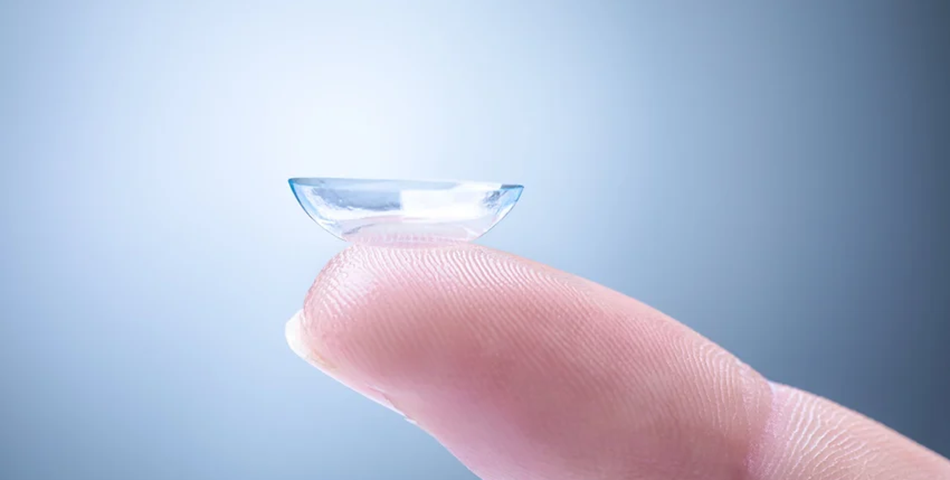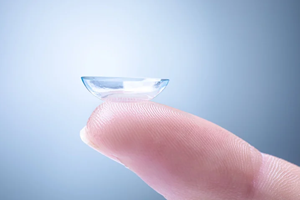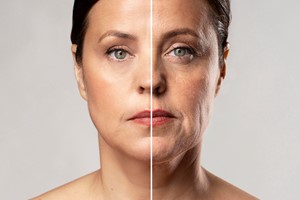The FDA has approved its first contact lens that comes equipped with its own antihistamine to help fight off eye itchiness caused by allergies during everyday wear.
Johnson & Johnson Vision Care’s Acuvue Theravision lenses are laden with ketotifen, the same drug used in a variety of eye drops for taming reactions to pollen, grass, pet dander or dust. In clinical studies, the soft, daily disposable contacts have been shown to work in as little as three minutes and provide itch relief for up to 12 hours.
J&J Vision estimates that about 40% of contact wearers also suffer from conjunctivitis caused by allergies—however, some types of medicated eye drops can interfere with typical lenses’ vision correction, leading to a complicated dance of swapping between the two.
According to the company, eight out of 10 regular contact wearers express frustration during allergy season, when any donning of lenses at all can make it difficult to rub their eyes.
The company secured its first regulatory approval in March 2021 for what it’s describing as a new category of drug-eluting contact lenses, with a green light in Japan from the Ministry of Health, Labour and Welfare. Acuvue Theravision's etafilcon A lenses each contain 19 micrograms of ketotifen, or about three times the amount of the active ingredient found in a typical eye drop, which is slowly released over a 12-hour period.
J&J’s eye health researchers worked hand-in-hand with the company's Janssen pharmaceutical division to create the drug-eluting lens. And while the idea for such a combination may seem obvious, the execution was far from it: Both ingredients had to be made completely compatible, meaning the medication couldn’t affect the clarity of the lens, while the lens couldn’t hamper the drug's activity. In addition, the new type of contacts wouldn’t work with traditional packaging, which needed to be sealed sterile while maintaining the antihistamine’s effectiveness.
Last year also saw J&J Vision receive an FDA approval for the company’s first contact lenses designed to help reshape the curve of the cornea and treat the progression of nearsightedness in children. Designed to be worn overnight, the Acuvue Abiliti lenses are fitted to match each eye based on its unique shape.
Johnson & Johnson Vision has unveiled new phase 3 data from two clinical studies of its antihistamine-releasing contact lens, showing that it was able to reduce feelings of itchy eyes after exposure to allergens.
The soft, disposable contacts are made of etafilcon A—the material used for many of J&J’s Acuvue daily-wear lenses—and were combined with a small amount of the antihistamine ketotifen, the active ingredient in Alcon’s Zaditor anti-allergy eyedrops.
Both trials randomized participants to one of three arms: one that received a pair of the drug-releasing lenses, one as a control group with regular lenses, and one group that received one of each in each eye.
While the antihistamine-eluting lenses did not demonstrate clinically significant reductions in eye redness, the trials’ secondary endpoint, average itching scores were significantly lower across the investigational groups.
"These phase 3 study results are important on multiple fronts,” J&J Vision’s director of clinical science, Brian Pall, said in a statement. "There was both a clinically and statistically significant reduction in ocular itching that occurred 15 minutes after lens insertion and lasted for the 12-hour study evaluation period.”
“This marks the first time that contact lens technology has shown potential in a large-scale study to address itch stemming from ocular allergies,” added Pall, who served as lead author of the trials’ manuscript, published in the journal Cornea.
J&J estimates that 1 in 5 people in the U.S., and similarly worldwide, experience an itchy allergic reaction in the eyes when exposed to irritants such as tree or grass pollen, pet dander or dust.
“It is encouraging to see this large-scale assessment that indicates the potential of a contact lens-based drug delivery system which, in the future, could represent an entirely new category of contact lenses,” said Xiao-Yu Song, J&J Vision’s global head of R&D. “We will continue development of this contact lens technology and are committed to making regulatory submissions for this antihistamine-releasing contact lens as we move forward.”













